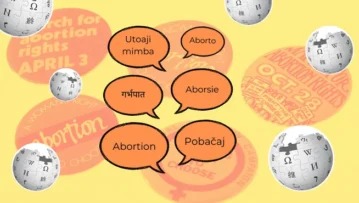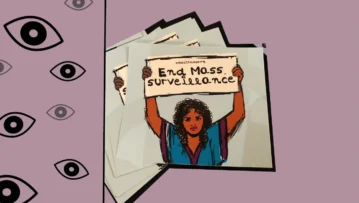This is part of a series of interviews in celebration of #PrideMonth and as part of the #VisibleWikiWomen campaign.

Is the content you find online affirming to your multiple selves? What is the role that Wikipedia and other online platforms play in telling the stories of trans people and their communities? How can we create trans feminist and intersectional memory online?
In this episode, Kenyan transgender activist and feminist Arya Jeipea Karijo, guides us through a fascinating path of unraveling the complexities of online representation of trans people from marginalized communities.
Starting from her own personal quest for affirming content at a young age, Arya ended up in the radical stance of recognizing that her own embodied experience and positionalty are knowledges.
« My lived reality is also knowledge, and this was a big difference from the point I was figuring out my identity, because I was seeking knowledge from outside […] but also it can be the other way around. »
But these forms of knowledges are hardly recognized as such. Historically — Arya sustains —, trans people in Africa have been portrayed through the lens of colonizers and their anthropological account of trans people is the one that has prevailed as “legitimate” published knowledge. As a result, current online public knowledge platforms such as Wikipedia, reproduce those dominant colonial perspectives, and fail to put trans people’s embodied experience at the center of knowledge production:
“I think the first draft of a Wikipedia article should come from the people living the reality, after that, editing could take place. But that whole idea that [an article] doesn’t exist until the skewed sources are mentioning us, I think that’s wrong, because those skewed sources will make sure our existence is erased.”
Owning our narratives also serves to make our communities more visible online, continues Arya. Visibility is crucial because it counteracts this dominant and monolithic narrative of the world where difference is not celebrated but is persecuted and feared.
“Visibility is important not just for me as a trans woman or for younger people who are trying to figure themselves out […], it is important for the world to become a more humane world, difference is part of being human.”
Indeed, Arya reminds us that when we live in a world where truth is being challenged, our own existence is our truth.
A call to action:
Join #VisibleWikiWomen and help us make trans women visible online, bringing images, data and descriptions to Wikimedia Commons!




